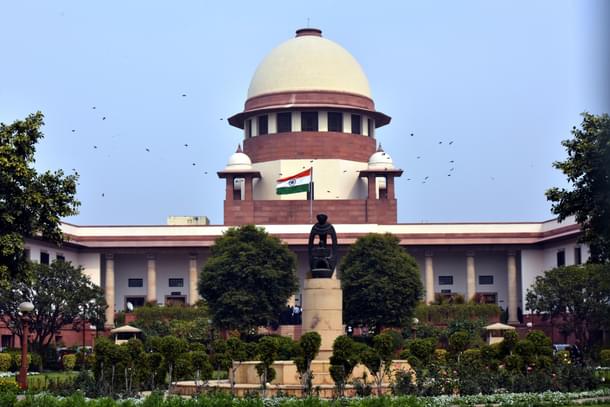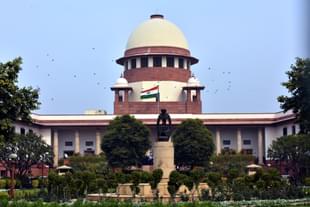News Brief
Maratha Quota Case: For How Many Generations Reservations Will Continue? Asks Supreme Court
Swarajya Staff
Mar 20, 2021, 12:53 PM | Updated 12:53 PM IST
Save & read from anywhere!
Bookmark stories for easy access on any device or the Swarajya app.


The Supreme Court on Friday (19 March) raised concerns over the possible inequality as a result of removing the 50 per cent cap on reservation as mandated by the historic Mandal Judgment also known as Indira Sawhney vs Union of India case of 1992.
Hearing the Maratha quota case, a five-judge bench led by Justice Ashok Bhushan also wanted to know the extent of generations till which the system of reservations in jobs and education will continue.
Appearing for the Maharashtra government, senior advocate Mukul Rohatgi asserted that the courts should instead empower the states to fix the reservation quotas.
He submitted that the central government’s decision to handover 10 per cent quota to the economically backward castes surpassed the 50 per cent limit too. Rohatgi mentioned that circumstances have undergone a change and hence there is a need to relook the Mandal judgement that was premised on the 1931 census.
“If there is no 50 per cent or no limit, as you are suggesting, what is the concept of equality then. We will ultimately have to deal with it. What is your reflection on that? What about the resultant inequality? How many generations will you continue?” the apex court bench asked.
The apex court also said that states have introduced many beneficial schemes in the 70 years of independence for backward communities. The bench asked whether they can accept that no development has taken place in all these years. The bench observed that eliminating groups that have come out of backwardness from reservation was the purpose of reviewing the Mandal judgement, reports The New Indian Express.
Responding to the Judges' query, Rohatgi said “Yes, we have moved forward. But it is not that backward classes have gone down from 50 to 20 per cent. We still have starvation deaths in this country. I am not trying to say that Indra Sawhney is completely wrong, throw it in the dustbin. I am raising issues that 30 years have gone by, the law has changed, the population has grown, backward persons may also have increased.”




